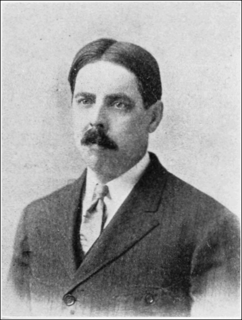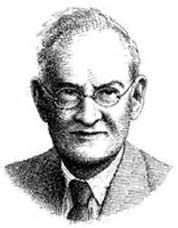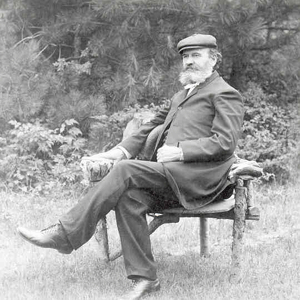A Quote by Edward Thorndike
The real difference between a man's scientific judgments about himself and the judgment of others about him is he has added sources of knowledge.
Related Quotes
If He opens a door for you, thereby making Himself known, pay no heed if your do not measure up to this. For, in truth, He has not opened if for you but out of a desire to make Himself known to you. Do you not know that He is the one who presented the knowledge of Himself to you, whereas you are the one who presented Him with deeds? What a difference between what He brings to you and what you present to Him!
Wine makes a man better pleased with himself. I do not say that it makes him more pleasing to others. Sometimes it does. But the danger is, that while a man grows better pleased with himself, he may be growing less pleasing to others. Wine gives a man nothing. It neither gives him knowledge nor wit; it only animates a man, and enables him to bring out what a dread of the company has presented.
We can hardly say that the Pharisees had an accurate ‘knowledge’ of man when they pointed to the sins (the real sins) of publicans and sinners. This judgment, which separated knowledge of man from self-knowledge, was as nothing in God’s eyes. The Jew did not have a better understanding because he was able to judge the heathen. In the sphere of abstract morality this could possibly be said, but this is not Biblical morality - O man, who judgest others!
A prejudice may be an unreasoned judgment, he [Hibben] pointed out, but an unreasoned judgment is not necessarily an illogical judgment. ... First, there are those judgments whose verification has simply dropped out of memory. ... The second type of unreasoned judgments we hold is the opinions we adopt from others ... The third class of judgments in Professor Hibben's list comprises those which have subconscious origin. The material that furnishes their support does not reach the focal point of consciousness, but psychology insists upon its existence.
It seems to me that the moralist is the most useless and contemptible of creatures. He is useless in that he would expend his energies upon making judgments rather than upon gaining knowledge, for the reason that judgment is easy and knowledge is difficult. He is contemptible in that his judgments reflect a vision of himself which in his ignorance and pride he would impose upon the world. I implore you, do not become a moralist; you will destroy your art and your mind.
LAUGHTER is the very essence of religion. Seriousness is never religious, cannot be religious. Seriousness is of the ego, part of the very disease. Laughter is egolessness. Yes, there is a difference between when you laugh and when a religious man laughs. The difference is that you laugh always about others - the religious man laughs at himself, or at the whole ridiculousness of man's being. Religion cannot be anything other than a celebration of life.
Knowledge about yourself binds, weighs, ties you down; there is no freedom to move, and you act and move within the limits of thatknowledge. Learning about yourself is never the same as accumulating knowledge about yourself. Learning is active present and knowledge is the past; if you are learning to accumulate, it ceases to be learning; knowledge is static, more can be added to it or taken away from it, but learning is active, nothing can be added or taken away from it for there is no accumulation at any time.
The Pavlovian view of women voters - plug the words in, and they will respond - sends a chill down my spine because it sounds like an adaptation of something I have written about communication between the sexes: When a woman tells a man about a problem, she doesn't want him to fix it; she just wants him to listen and let her know he understands. But there's a difference between a private conversation and a presidential election, between what we want from our leaders.
The average man takes life as a trouble. He is in a chronic state of irritation at the whole performance. He does not learn to differentiate between troubles and difficulties, usually, until some real trouble bowls him over. He fusses about pin-pricks until a mule kicks him. Then he learns the difference.
When Abba Anthony thought about the depths of the judgments of God, he asked, 'Lord, how is it that some die when they are young, while others drag on to extreme old age? Why are there those who are poor and those who are rich? Why do wicked men prosper and why are the just in need?' He heard a voice answering him, 'Antony, keep your attention on yourself; these things are according to the judgment of God, and it is not to your advantage to know anything about them.'





































